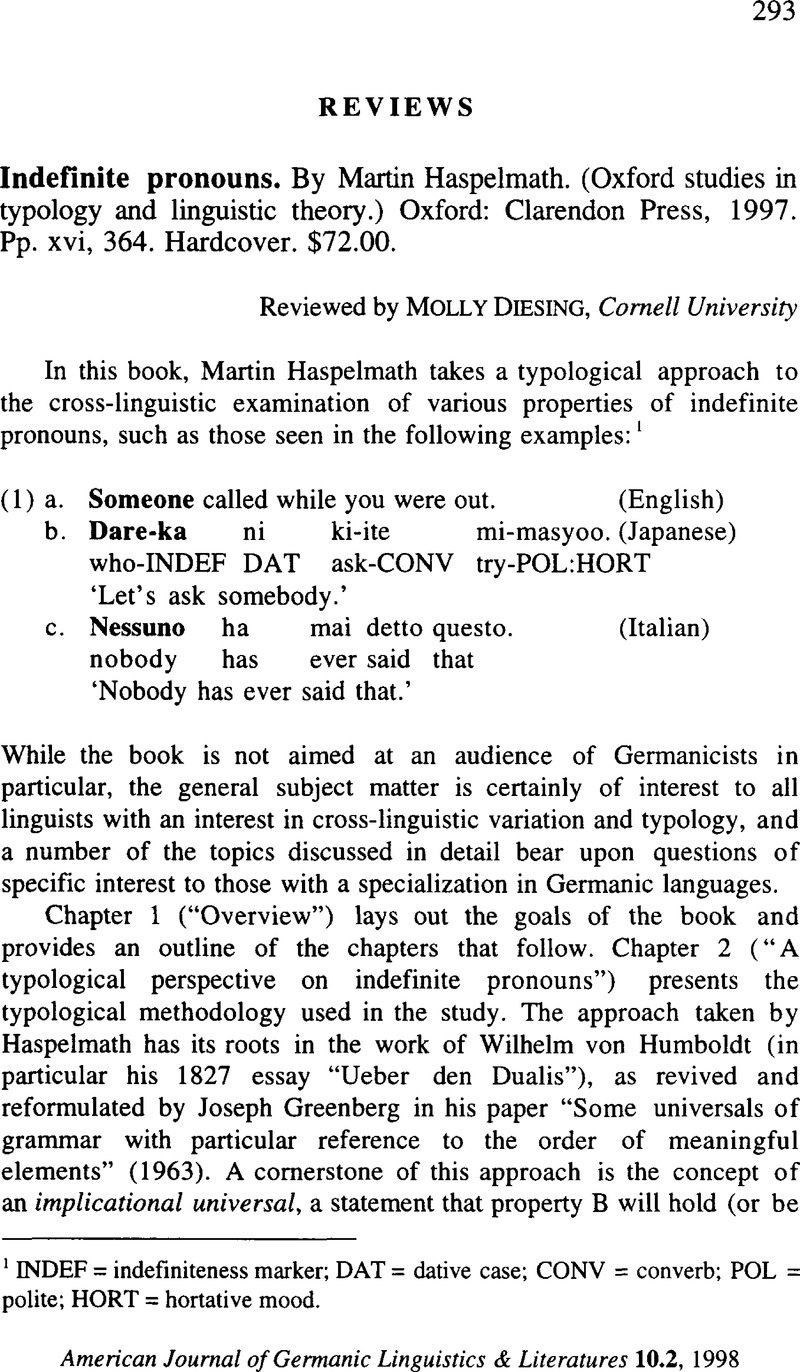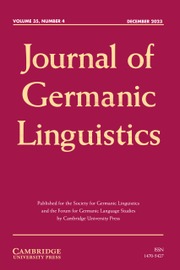No CrossRef data available.
Article contents
Indefinite pronouns. By Martin Haspelmath. (Oxford studies in typology and linguistic theory.) Oxford: Clarendon Press, 1997. Pp. xvi, 364. Hardcover. $72.00.
Published online by Cambridge University Press: 05 December 2008
Abstract
An abstract is not available for this content so a preview has been provided. Please use the Get access link above for information on how to access this content.

- Type
- Reviews
- Information
- Copyright
- Copyright © Society for Germanic Linguistics 1998
References
REFERENCES
Berman, Stephen. 1991. On the semantics and logical form of WH-clauses. Doctoral dissertation, University of Massachusetts, Amherst.Google Scholar
Greenberg, Joseph H. 1963. Some universals of grammar with particular reference to the order of meaningful elements. Universals of language, ed. by Greenberg, Joseph H., 73–113. Cambridge, MA: MIT Press.Google Scholar
Heim, Irene. 1982. The semantics of indefinite and definite noun phrases. Doctoral dissertation, University of Massachusetts, Amherst.Google Scholar
Humboldt, Wilhelm von. 1827. Ueber den Dualis. (Rpt. in Humboldt, Wilhelm von. 1985. Über die Sprache, ed. by Trabant, Jürgen, 104–28. Munich: Deutscher Taschenbuchverlag.)Google Scholar
Lewis, David. 1975. Adverbs of quantification. Formal semantics of natural language, ed. by Keenan, Edward L., 3–15. Cambridge: Cambridge University Press.CrossRefGoogle Scholar
Postma, Gertjan. 1995. Zero semantics. Leiden: Holland Institute of Generative Linguistics.Google Scholar


